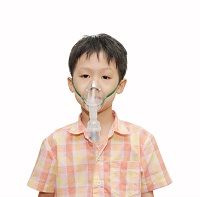New Primary Care-Based Program Improves Pediatric Asthma Assessment and Treatment
Researchers have shown that a new primary care-based program is better at identifying poorly controlled asthma, and promoting improved treatment among children, than routine office visits.

Researchers have shown that a new primary care-based program is better at identifying poorly controlled asthma, and promoting improved treatment among children, than routine office visits.
To explore this hypothesis, researchers from the Children’s Hospital at Montefiore (CHAM) assessed the severity of asthma in 79 children (5-19 years old) who either were taken to routine healthcare visits or a dedicated asthma program.
The research team used the Expert Panel Report 3 (EPR-3): Guidelines for the Diagnosis and Management of Asthma, and requested that clinicians ask patients five standardized questions regarding their asthma symptoms and use of rescue medication.
Physicians were also required to administer spirometry during the appointment.
According to the study results, published in the Journal of Asthma, physicians identified more cases of moderate or severe asthma among the children referred to the asthma program compared to those who simply completed routine care visits.
Spirometry — typically not practiced in primary care settings because of time constraints – also played a major role in reporting 56.9%of patients suffered moderate or severe persistent asthma.
Furthermore, visits to the asthma program led to more prescriptions of controller medications. These visits also prompted revisions to medication plans to accurately target their asthma severity.
The study also highlighted that emergency department visits for asthmatic attacks decreased from 32% in the 12 months before visiting the asthma programs to 8% after the asthma program visits.
With nearly seven million children in the US reported to suffer from asthma, experts agree almost half are poorly controlled.
Karen Warman, MD, Comprehensive Family Care Center, CHAM, said in a news release, “We recognize many demands are placed on primary care physicians during routine healthcare maintenance visits. For this reasons, we recommend arranging separate asthma-focused visits, which allow more time to speak with families, assess for environmental exposures, discuss medications, and demonstrate correct use of spacer devices.”